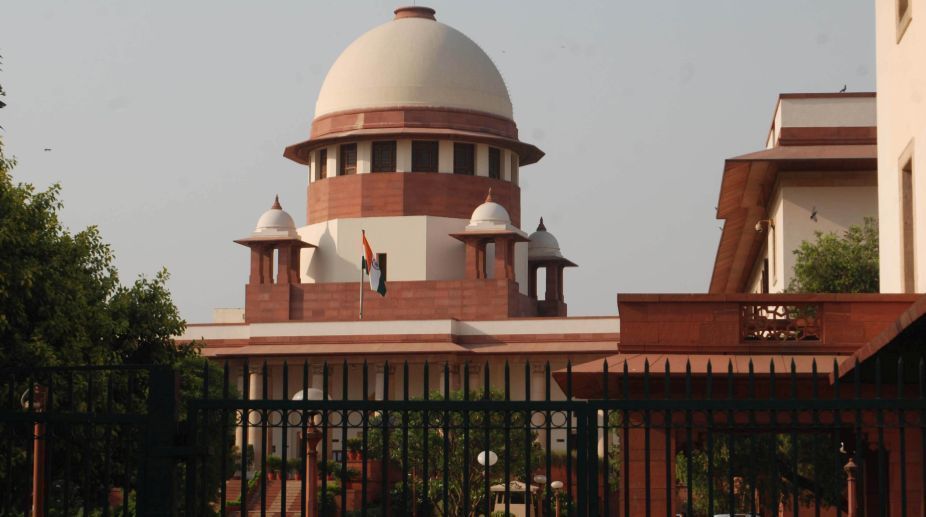Making a strong pitch for decriminalisation of politics yet again, the Supreme Court on Wednesday called for creation of special courts to exclusively deal with criminal cases involving politicians, including MPs and MLAs, directing the Centre to place before it a detailed scheme with financial implications in this regard.
The apex court asserted that the move to set up fast-track courts to try politicians involved in criminal cases would be in the “interest of the nation”.
The top court also asked the Centre about the status of 1,581 cases involving MPs and MLAs ~ as declared by the politicians at the time of filing their nominations during the 2014 general elections ~ seeking to know how many of them have been disposed of within one year in accordance with its 2014 orders.
Besides seeking details of how many of these 1,581 cases have ended in conviction or acquittal of the accused, a Bench comprising Justices Ranjan Gogoi and Navin Sinha also asked the Centre to spell out the number of criminal cases filed against politicians from 2014 till date as well as the data on their disposal.
During the hearing, Additional Solicitor General (ASG) Atmaram Nadkarni, representing the Centre, told the Bench that the government was “not averse to setting up of special courts and quick and early disposal of criminal cases involving politicians”.
He said the recommendations of the Election Commission of India (ECI) and the Law Commission favouring life-time disqualification of politicians convicted in criminal cases was under “active consideration” of the Centre.
When Nadkarni said, “Government of India’s stand is that decriminalisation of politics has to be done,” the Bench asked, “Can there by any other stand?”
Noting that the average number of cases each court in the country was currently handling was over 4,000 in subordinate judiciary, the Bench said unless a court deals exclusively with cases involving politicians, it would be difficult to complete the trial within a year.
The apex court also said the issue of appointment of judicial officers, public prosecutors, court staff and infrastructure for these special courts would be dealt with by it if required.
When Nadkarni sought six weeks time to place the details sought by the court, the Bench posted the matter for hearing on 13 December.
The apex court was hearing petitions seeking to declare the provisions of the Representation of People (RP) Act ~ which bar a convicted politician from contesting elections for six years after serving jail term ~ as ultra vires to the Constitution.
The Centre, in its affidavit, had said the petitioner’s plea seeking life-time bar on convicted lawmakers in this regard was not maintainable and that the plea should be dismissed.
The apex court had on 12 July pulled up the ECI for not taking a clear stand on this plea which has also sought a direction to the Centre and the EC to fix minimum educational qualification and a maximum age limit for persons contesting polls.
During the hearing on Wednesday, the ECI however supported the plea seeking life-time disqualification on convicted politicians, saying it has already written to the Centre to bring in appropriate amendments to the law for it.











